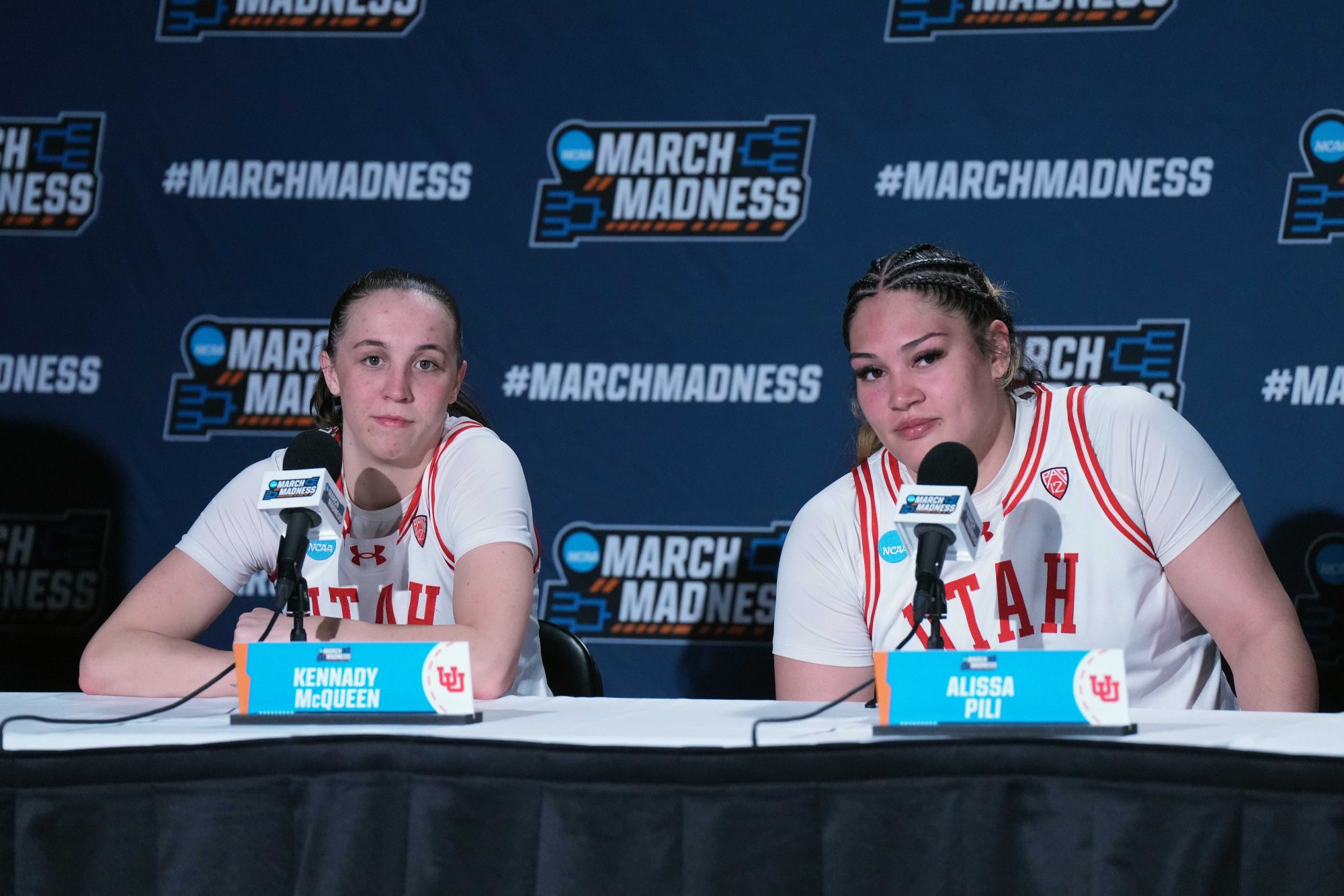The Utah women’s basketball team faced incidents of racial hate while traveling between their hotel and their restaurant for dinner this weekend.
“For our players and staff to not feel safe in an NCAA tournament environment, it’s messed up,” head coach Lynne Roberts said in a press conference, where she said the team moved hotels out of concerns for player safety.
Local officials held a press conference to apologize, which included interjections from far-right extremists. The governor, mayor, and president of the region’s Tri-State Conference of the NAACP responded with statements. The FBI is involved.
Several drivers reportedly encountered or waited for the Utah traveling party outside of a restaurant and shouted the n-word at them before and after their meal, according to KSL.com. Three factors led to this preventable breakdown.
Spokane was packed.
The men’s tournament plays first and second-round games at neutral sites planned years in advance, with Spokane as a men’s host city this year, while the women’s tournament plays at the top seed, Gonzaga this year. A large youth volleyball tournament held during the same weekend brought in even more visitors.
Gonzaga allowed it.
Women’s host No. 4 Gonzaga didn’t have enough space for any of its visitors and found space about 30 miles away in Coeur d’Alene, Idaho. The city and surrounding region have a longstanding reputation as a “hotbed” for right-wing extremists and white nationalists.
And the NCAA allowed it.
Gonzaga received a waiver from the NCAA to put UC Irvine and Utah in Coeur d’Alene. South Dakota State stayed nearby in Post Falls on the Idaho-Washington border. After the incidents, both UC Irvine and Utah moved to hotels in Spokane.
Many women’s basketball fans love the home court advantage and atmosphere during the NCAA tournament, and even prefer it to a neutral site. But the lack of oversight is unacceptable. It was Gonzaga’s responsibility as a host site to host these teams, and safety and security is the bare minimum. Gonzaga administrators must have known Coeur d’Alene’s reputation and history of hostility toward visitors. The NCAA is also to blame, not only for approving an unsafe location but also for placing responsibility on Gonzaga to find sites when its men’s tournament helped create the hotel shortage in Spokane. If the NCAA is going to keep the model of having women’s teams at home sites for the first and second rounds, it needs to guarantee that those players will not be an afterthought simply because the men’s neutral sites are organized first.
The Utes are an elite basketball team, led by former Pac-12 player of the year Alissa Pili. She dropped 37 points in January in the Utes’ 20-point win over USC, a team that is now a No. 1 seed in the tournament.
Pili had 35 in her team’s second-round loss to Gonzaga on Monday night.







![[Subscription Customers Only] Jun 15, 2025; Seattle, Washington, USA; Botafogo owner John Textor inside the stadium before the match during a group stage match of the 2025 FIFA Club World Cup at Lumen Field.](https://frontofficesports.com/wp-content/uploads/2026/02/USATSI_26465842_168416386_lowres-scaled.jpg?quality=100&w=1024)
![[Subscription Customers Only] Jul 13, 2025; East Rutherford, New Jersey, USA; Chelsea FC midfielder Cole Palmer (10) celebrates winning the final of the 2025 FIFA Club World Cup at MetLife Stadium](https://frontofficesports.com/wp-content/uploads/2026/02/USATSI_26636703-scaled-e1770932227605.jpg?quality=100&w=1024)








